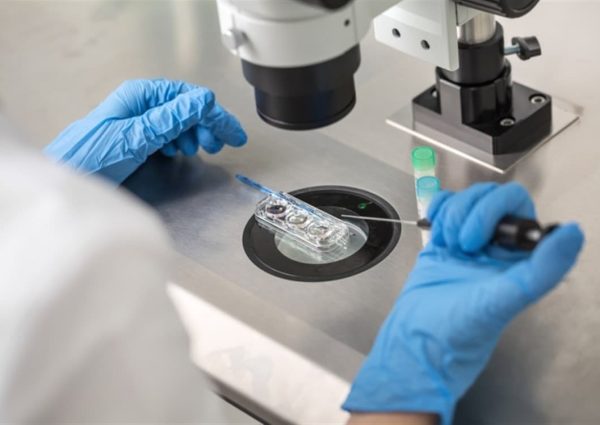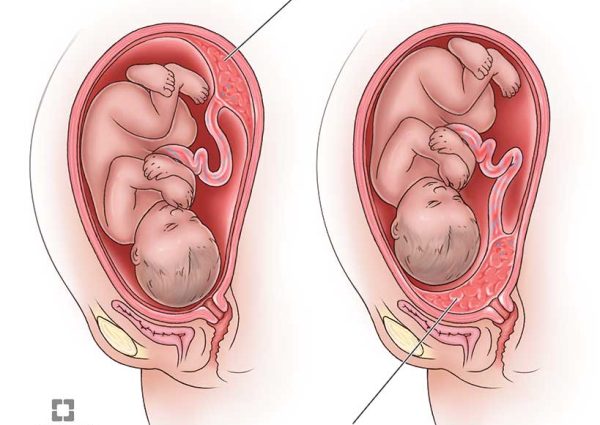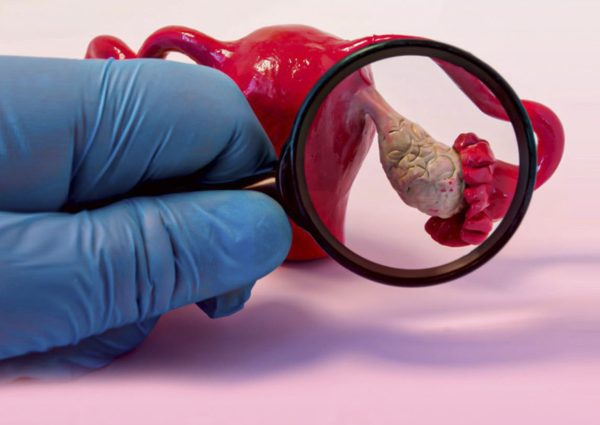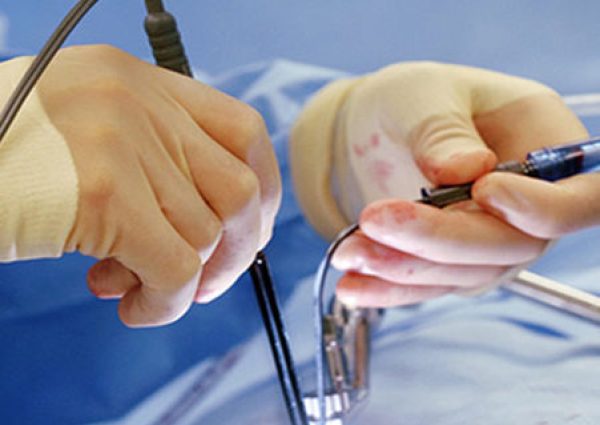FAQS
One of the best international women health services
Dr Haytham El Tehewey is dedicated to providing patients with the highest quality care and Helping couples successfully achieve their family-building goals, so we try to add the most Frequently Asked Questions on Obstetrics, Gynecology and infertility.

FAQS -Frequently Asked Questions About IVF
IVF is unarguably one of the most effective and successful infertility treatment options. Generally, the success rate of IVF treatments is about 40-50 per cent thought it may vary between clinics.
IVF is generally a safe procedure, but some patients may experience side effects may include mild bruising, soreness, nausea, vomiting, mood swings, bloating, breast tenderness, and fatigue. However, these side effects can be easily managed .
IVF is an excellent infertility treatment procedure for couples who otherwise do not conceive
- IVF is a good choice for women who are diagnosed with damaged or blocked fallopian tubes to have a baby using their own eggs.
- we have rich experience in maximing the chances of women with low ovarian reserve or older women conceive.
- In cases of male infertility the infertility specialist may recommend intra-cytoplasmic sperm injection (ICSI) as part
- Endometriosis: Patients who are diagnosed with Endometriosis may find significant relief with IVF treatment to conceive
- More successful than other infertility treatments: IVF is generally considered a better and more successful infertility procedure when compared as (IUI) .
- IVF is generally a successful procedure and has already assisted millions of couples, However, some patients may have to undergo a series of IVF treatment cycles to deliver a healthy baby.
- In rare cases, patients may experience mild side effects such as breast tenderness, stress, bruising,etc. Fortunately, most of these side effects can be treated by the infertility specialist.
- Multiple Pregnancy: There is usually more than a single embryo put back into the female uterus that can result in a likelihood.
If you are looking for the best IVF center in Egypt, it is recommended that you choose Dr. Haytham IVF Center which takes a holistic patient-first and family-friendly approach to infertility treatments and pregnancy.
- Dr. Haytham has experienced teams of infertility treatment specialists who discover the root cause so you don’t have time and money
- Fortunately, the teams of geneticists, embryologists, and support staff keep pace with the latest advancements and research to offer compassionate patient care and
IVF procedures are generally painless as patients are administered with anaesthesia if required. Some patients may feel slight discomfort for a short timeif you are ready to get started with your fertility journey, please feel free to reach out to the best IVF centre in Egypt by calling us at
IVF significantly improves the chances of a woman to conceive but it does not guarantee pregnancy in the very first IVF cycle. However, women who don’t get pregnant have good chances of getting pregnant on the next IVF cycles.
a series of tests can evaluate Fertility levels such as pelvic examination, pap smear, ovarian function test, hysteron salpin gogram (HSG), semen analysis, blood tests, ultrasound, physical examination, and test for chlamydia to name a few.
FAQS -Frequently Asked Questions about Obstetrics & Gynecology
Our first goal during your initial visit is to place you at ease. Before performing any tests, we explain our approach to your care and answer any questions you may have. We take time to explain your reproductive anatomy and any factors that may be contributing to a fertility problem.
Following a thorough medical interview, we offer you a comprehensive physical examination and pelvic ultrasound. At the conclusion of your visit we outline a thorough infertility evaluation to determine the cause of your fertility problem
The evaluation may include one of the items listed below.
Endometrial Biopsy
Hormonal Test
Hysterosalpingogram (HSG)
Hysteroscopy
Laparoscopy
Ultrasound
• Having intercourse in the days before and during ovulation. If you have regular menstrual cycles, you will be ovulating around two weeks before your periods.
• If you have noticed a surge in cervical mucus, you should start having intercourse every day or every other day until you have reached ovulation.
• Take regular ultrasound of the ovaries and blood hormone tests to efficiently track your ovulation.
• lead an active lifestyle and abstain from smoking, alcohol,scheduled drugs, and caffeine.
• Sleep of at least 7-9 hours and take less stress.
• Eat foods (such as fruits, vegetables, grains, and nuts) rich in antioxidants.
• Eat a substantial breakfast as it improves the hormonal effects of PCOS, which is a major cause of infertility.
• Blood hormone tests to efficiently track your ovulation
• You should avoid a diet lower in unsaturated fats and higher in trans fats.
- Caesarean section is resorted to in case of difficulty in natural childbirth and is performed in the following cases:
- Sometimes there is no labor.
- If the mother is overweight.
- In the case of diseases such as heart disease and skin diseases.
- Twin pregnancies.
- The fetus is in an abnormal position.
- Previous cesarean delivery.
It is preferable for the mother to wait for a period of not less than 18 months before thinking of becoming pregnant again until the wound is healed and her health is restored again.
Symptoms of uterine and ovarian infections appear after a period of infection of the vagina and leaving it untreated. Bacteria and germs may move from the end of the vagina and cervix to the inner lining of the uterus, tubes and ovaries.
Infections can also occur after an abortion because the remnants of the fetal sac are not completely removed from the uterus, which leads to the proliferation of bacteria in the uterine wall and its subsequent transmission to the fallopian tubes and ovaries.
Symptoms of infections of the uterus and ovaries appear in the form of severe pain in the abdominal area, along with persistent vaginal secretions, and a rise in body temperature.
If these infections are not treated as soon as symptoms appear, this may lead to the patient being exposed to more complications, the most famous of which is blockage of the fallopian tubes.
After getting rid of simple infections through medicines, pregnancy can occur naturally after a short period, and in the case of advanced infection treated by surgical intervention, the woman may need to undergo ICSI.
ICSI operations are performed by activating the ovary and withdrawing the eggs from it using a small needle and merging them with the husband’s sperm until fertilization takes place, and then implanting them again inside the uterus after the stage of treating the infection is completed.
FAQS -Frequently Asked Questions About Gynecological Problems
A hormone is a steroid in your blood produced from one organ and having its function on other parts of the body.
Female hormones fluctuate based on your menstrual cycle and are involved in the development of eggs, ovulation, and implantation of the embryo in the uterus.
For this process to occur effectively, hormones must be produced in a specific amount and time. Other reasons for testing include evaluation of ovarian age, thyroid and adrenal gland function. Levels are measured by a blood sample in the lab.
A hysterosalpingogram (HSG) is a specialized office x-ray procedure that determines if the fallopian tubes are open and if the uterus is of normal shape.
The HSG is performed following completion of your menstrual flow and before ovulation, usually between cycle days 6-12. An antibiotic is prescribed to reduce the risk of infection. Ibuprofen (Motrin, Advil) is usually taken 30 minutes prior to the test to minimize cramping.
The procedure involves placing a small catheter through your vagina and into the cervix to inject a small amount of contrast dye and observe the liquid filling the uterus and flowing through the tubes. Please inform your doctor if you are allergic to contrast dye, iodine, seafood/shellfish to avoid an allergic reaction to the HSG dye.
An endometrial biopsy is a minor office procedure and involves placing a small catheter through your vagina into your uterus to remove a small sample of the lining (endometrium) for microscopic examination. Common reasons for performing this test are to:
- Evaluate abnormal uterine bleeding to determine if your lining is over-developed (endometrial hyperplasia)
- Detect the presence of an important protein needed for embryo implantation (integrin)
- Calculate if the lining is being prepared correctly by your hormones to receive the embryo or deficient (luteal phase defect)
Test results are usually available within ten days.
Couples with at least one child of a particular sex who are interested in having another child of the opposite sex are welcome to our practice for family balancing. Our state-of-the-art, on-site reproductive laboratory utilizes a combination of in vitro fertilization (IVF) and pre-implantation genetic diagnosis (PGD) technologies, allowing for the determination of the pre-embryo(s) gender.
The combination of IVF and PGD is the most precise way to determine if an embryo is male or female with nearly 100 percent accuracy.
If you are facing infertility or looking to prolong your fertility, egg freezing could be a solution. This process offers potential benefits including:
– Preservation of Eggs
– Additional Storage Options
– Reduced Costs
Our extensive experience in the egg freezing process allows us to address common questions and concerns including detailing the process, associated risks, and the expectations for a successful outcome.
The placenta is a small organ that forms during pregnancy and attaches to the wall of the uterus, leading to the umbilical cord that connects to the fetus.
-The function of the placenta is to perform the following tasks:
-Delivery of food to the fetus through the umbilical cord.
-Excretion of fetal waste.
– Delivering oxygen and expelling carbon dioxide from the fetus’s body, especially during the stage that precedes the formation of its lungs.
-The placenta – in normal cases – forms at the top of the uterus on the front or back wall, but it may grow in a different place, which affects the woman with the problem of “advanced placenta”.
We use genetic testing as one of our tools to provide the most advanced reproductive healthcare available.
We are proud to offer the latest and most unique reproductive technologies, including pre-implantation genetic diagnosis (PGD) and chromosomal analysis (FISH).
Genetic testing involves examining your DNA, the chemical database that carries instructions for your body’s functions. Genetic testing can reveal changes or alterations in your genes that may cause illness or disease.
FAQS- Frequently Asked Questions About Hysteroscopy & Laparoscopy
Hysteroscopy is a method of examining the inside of the uterus using a small, lighted telescope (hysteroscope). Conditions that can be treated by hysteroscopy include:
Fibroids
Uterine scarring
Polyps
Congenital malformations
A diagnostic hysteroscopy can be done in our office during menstrual cycle days 6-12.
A tiny, flexible, lighted telescope is passed into your vagina and through your cervix into the uterus. A small amount of saline is injected through the scope to allow for better visualization of the uterine cavity. Images of the uterine cavity will be projected on a monitor so you can watch. If abnormalities are discovered, an operative hysteroscopy will be scheduled. The procedure normally takes less than 5 minutes and involves minimal to no cramping.
Laparoscopy is an outpatient surgical procedure to view the pelvic organs by using a small, lighted telescope (laparoscope) inserted through the abdomen at the belly button. This procedure is used to diagnose and treat problems such as blocked fallopian tubes, endometriosis, ovarian cysts, or adhesions (scar tissue) all of which may impact fertility.
Book Now
Book your Visit , Your Online Consultation or Ask The Doctor
international iformation
https://ivf-worldwide.com/







